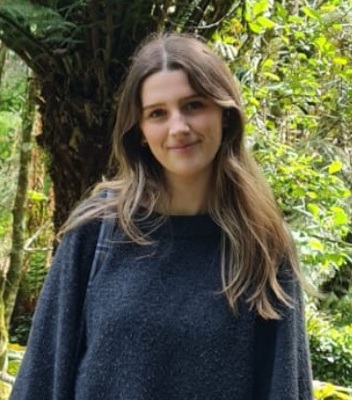
Edward Sankey
Current Employer/Organisation Name
Accenture
What have you been doing since leaving Exeter, and what are you doing now?
After graduation from Exeter I joined Accenture where I’ve been working for almost four years as a Management Consultant. It has been a fascinating place to start my career after Exeter. Management Consultancy is often quite hard to define, but in short, we help tackle our client’s problems. Specifically, I work within the Capital Markets industry, with our Investment Banking clients, on their major strategic initiatives and business restructuring. Most recently, I’ve been supporting a American bank on their Brexit strategy to ensure they can continue to provide uninterrupted products and services to their EU based clients.
Why did you choose this career? And what do you enjoy most about your work?
I hadn’t actually heard of Accenture before I came across their stall at the Exeter University Careers fair back in 2014. By talking to them I found out about their internship scheme for second year undergraduates. After completing the internship I got offered a full time graduate job and I took them up on their offer. One of the main reasons I choose the career was because it is enormously varied, projects with clients can last from a matter of weeks to years, but typically 6 months is the norm. This gives you an opportunity to work in lots of new businesses, meet new clients, and tackle lots of different problems. Crucially, problem solving is something I really enjoy, working in Management Consulting you need to be proactive and creative in defining solutions before talking to SMEs to understand how they can work before presenting them back to the client. You also have to be comfortable working with a degree of ambiguity. Consulting isn’t a career if you feel like you need to be told what to do next. You will need to be proactive, find your own feet, initiate conversations with people you don’t know, on topics you don’t yet understand, and get up to speed quickly. As a result, you’ll never be bored! For a lot of graduates working with clients is something that motivates them enormously and is something that I enjoy most. However, there are very few careers where, from more or less day one, you can work directly for a client on their client site so the early responsibility you get is great. It is also a very social industry. As a consultancy firm our product is people essentially, so it is important you can develop strong relationships with your clients, key stakeholders and other team members from your firm.
Please tell us if you were a member of any societies, groups or sports clubs?
I was a member of the Exeter University Clay Pigeon Shooting Club. I’d been shooting clay pigeons since I was small, and the club gave a great opportunity to practice weekly as well as compete across the country.
What did you enjoy most about your programme and what was the biggest highlight?
I doubt many people would say this, but probably my dissertation was what I most enjoyed. It was the culmination of everything I had learnt since my first day in lectures and was great to people to produce something that was 100% research led by me. I really enjoyed going out collecting the data and forming my arguments. Probably less fun was doing all the references, which typically I’d left until last. I also had a great lecturer called Nick Gill who taught the Geographies of Politics, Nick had a research interest in immigration. I was studying his module at the time of increased migration of people into the EU from across the Mediterranean, which had gained significant media coverage. Nick weaved this into the course really well and was really passionate about it, so much so, he took a really genuine interest in each of the essays we were writing for his course.
What did you enjoy most about studying here?
It has to be the place, Exeter as a city is an amazing place to live and study in. It has everything you could possibly want and is a gateway to some stunning countryside. Secondly, the course was incredibly interesting and taught by some world-class lecturers who leaders in their academic field were. Also, there aren’t many courses you can do with some many trips, from New York for a week in the snow when the Hudson had frozen over to a day on Dartmoor in the pouring rain and a howling gale.
Why did you choose to study at Exeter?
Easy. As someone who had come on family holidays to Devon for most of my life growing up, why would you not want to go to University where people go on holiday? I actually didn’t originally have Exeter down as one of my options. My sister, a year older, persuaded me to include it and go and have a look. It was the first University I’d ever set foot in, and loved it. The campus was beautiful and so green and the facilities were top class. I couldn’t imagine studying anywhere else. When I looked at other Universities they didn’t really compare from that perspective. Also the course sounded fantastic, as someone that has quite a low attention span, there was a huge breadth of modules to choose from so I felt like it would keep me engaged!
What skills and experiences have been most useful for your career?
The ability to formulate an argument, through essays at University has been most useful for your career. Like writing an essay, as a Management Consultant you must complete your analysis, collect your data and formulate and articulate your argument to your client in a way they can understand. Similarly, Geography teaches you to be familiar with using quantitative as well as qualitative data, being comfortable with numbers is crucial for consulting. When trying to solve a problem, clients will want evidence that X and Y is taking place. The ability to provide data-driven evidence using numbers can be incredibly powerful. We also did a lot of presentations over the duration of my course. The ability to stand up and talk clearly in front of people is a vital one for a career in consulting.
What advice would you give to a current student who wishes to pursue your career?
Firstly, try and get experience within the industry. There are lots of companies out there that have a range of work experience opportunities from insight days to year long internships. These firms range massively in size from over 500,000 employees globally at Accenture, to say 25-50 at a smaller regional UK based firm. Secondly, also get experience from outside the industry. Evidence of problem solving, teamwork, taking on responsibility and using your initiative and owning a piece of work independently are all skills consulting recruiters will want to see. Join a society or sport, recruiters like to see evidence of achievement and hard work outside the lecture hall as well as in it. Make sure you’re aware of what is going on in the news. Understand what the key emerging technology trends are and make sure you have an opinion on how they can help businesses. If you happen to be a geographer, or even if you don’t, understand how Climate Change is going to impact business.
What are your plans for the future?
In the short term I want to continue doing what I’m doing. But looking further ahead I think I’d like to go in house and work within the industry either in Corporate Strategy or Government Affairs.

